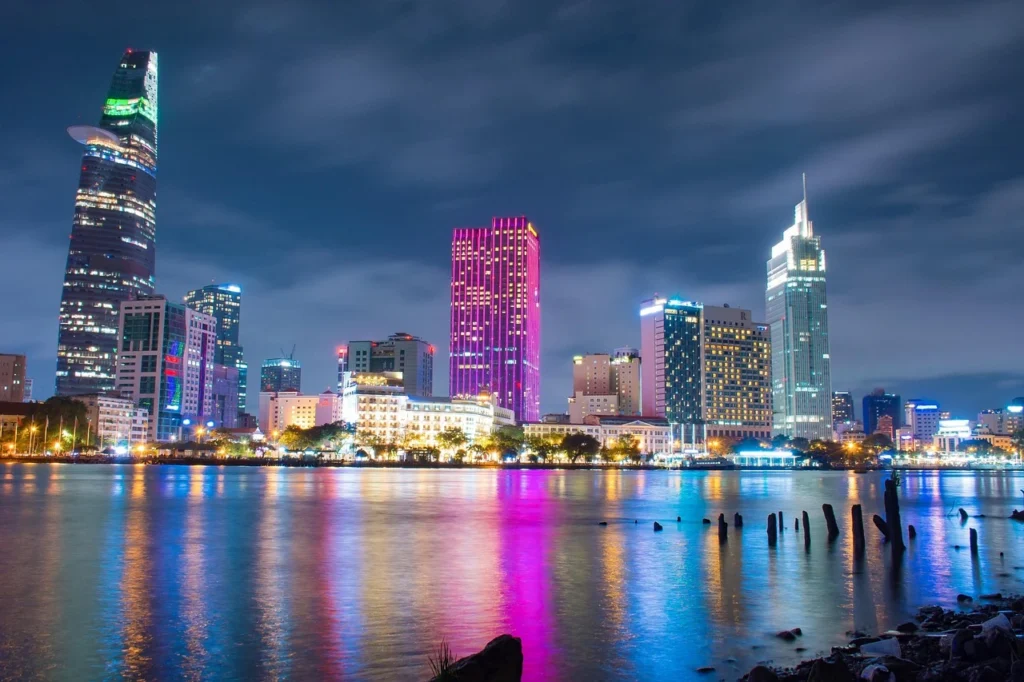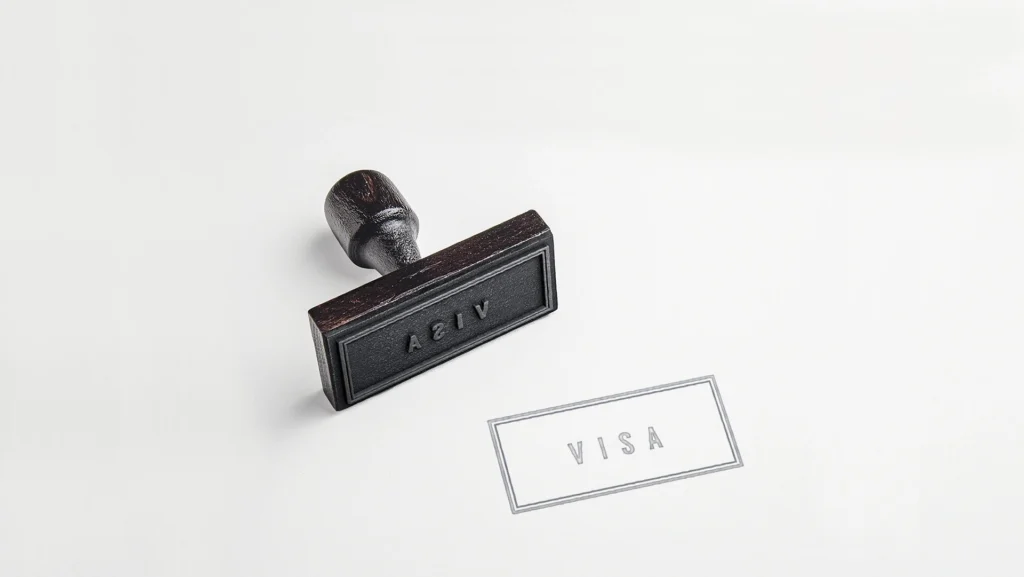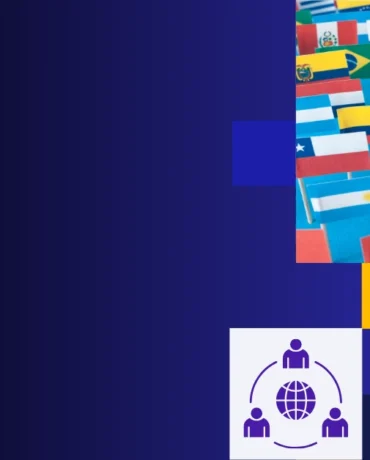Vietnam’s visa exemption now applies to Dutch citizens. At the same time, Vietnam work permit requirements have undergone major changes to attract foreign professionals and investors. The reforms streamline applications, expand exemptions, clarify certain categories (of workers), and allow greater mobility across provinces. They also support Vietnam’s shift towards a knowledge- and innovation-driven economy by facilitating international expertise in priority sectors such as finance, science, technology, and digital transformation. Overall, the changes provide faster, more predictable onboarding for foreign employees while easing the administrative burden on employers.
In this update, we will set out the changes in more detail so you know what to expect and what the requirements are.
Vietnam visa exemption vs business visa: what’s new in 2025?
Starting 15 August 2025, Dutch citizens are entitled to a visa exemption, just like most other EU countries. This means that Dutch citizens can enter Vietnam as tourists for 45 days without needing a visa. They can still request a tourist visa if they would like to stay longer, for up to 90 days.
However, Dutch citizens should not conduct any business activities during this period. If they like to attend a meeting with a client or future partner or sign a contract, they could ask for a business visa. Dutch citizens can obtain a business visa via sponsorship from a business in Vietnam.
A business visa is also necessary if they want to start the Vietnam work permit procedure, because it is not possible to do that with an exemption or with a tourist visa.
Note that another group of people is also exempt from obtaining a visa as of 15 August 2025. This exemption applies to scholars, experts, scientists, professors at universities/research institutes, chief engineers, and high-quality digital technology talents, investors, and corporate leaders from the world’s top 100 largest firms (by market capitalisation), individuals excelling in culture, arts, sports, and tourism who positively influence the public, and some other categories. These individuals can obtain a five-year visa exemption. However, they can only stay up to 90 days and then have to leave Vietnam. They are not able to work in Vietnam, but need to obtain a work permit or an exemption.

Vietnam’s work permit 2025 updated
As of August 7, 2025, Decree 219/2025/ND-CP on foreign workers entered into force, replacing Decrees 15/2020 and 70/2023. Some noteworthy changes are:
- The requirement to post the job
- Clarification of the various categories
- Changes in requirements
- The integration of various procedures
- The possibility of working in more than one province
- Expansion of exemptions
- The shortening of processing time
These changes are going to make it easier and faster to employ a foreigner. Note that the changes are particularly relevant if foreign staff are active in sectors such as fintech, semiconductor, software, or digital transformation.
Applications for issuance, re-issuance, extension, or revocation submitted before the new decree’s effective date will proceed under Decree 152 and Decree 70. Existing work permits and exemptions remain valid until expiry.
Here is the detailed information for some key changes:
Job posting
Employers can now post the recruitment notice, but it should be at least five days before the submission of the application. The categories for which a posting is required have been reduced. In case of an intra-company transfer, an assignment, or a secondment, it is not necessary to sign a contract with the Vietnamese entity.
Noticeably, the work permit file needs to include a document proving that the employee has been working with the company abroad for at least 12 months immediately before entering Vietnam.
New categories and requirements
Decree 219 introduces the new category of executive director, and amends the requirements to obtain a work permit for the expert and technician categories. No changes for the manager category.
Executive Director
Under the previous decree, the role of an employee who heads a company, but is not on the board, was not a separate category. The limit of the manager category was to the enterprise law positions, such as owners, board members, and legal reps.
The following roles will fall under this category: heads of branches, representative offices, or business locations of enterprises, but also heads and direct managers of a field of an agency, organisation, or enterprise who have at least three years of experience in a field suitable for the job position that the foreign worker is going to work in Vietnam.
Expert
To qualify as an expert, employees now only need to have at least two years of relevant experience; this was three years. For people working in categories prioritised by Vietnam, such as finance, science, technology, innovation, national digital transformation, or socio-economically prioritised sectors, the requirement is at least one year of work experience.
Note that if an employee works in these specialised fields, they don’t need the work permit requirement in cases confirmed by ministries, ministerial-level agencies, or provincial-level people’s committees.
Technician
The requirements for this category also changed. Workers qualify if they have at least one year of vocational or technical training completed with a minimum of two years, or they have at least three years of relevant work experience for the position in Vietnam. This used to be three and five years, respectively.

Multi-province eligibility
The applicant can now only request the work permit at the location of the employer’s head office. The applicant must list all intended workplaces in the application dossier. At least three days before the scheduled start date, the employer must notify the local authority where the foreign employee is going to work, providing certain information. The same procedure applies in the case of an exemption.
Exemption
In the past, foreigners working less than 30 days per visit and no more than three times per year did not need to obtain a work permit. This has been amended, and the total working period can be a maximum of 90 days in one calendar year. So the length stays the same, being 90 days per year, but the duration of a visit can be up to 90 days, so it can, for example, be 60 and 30 while it used to be three times 30 days maximum. Companies must notify the competent authority in writing at least three working days before the foreign worker’s expected start date.
Competent authority
The competent authority is no longer MOLISA/DOLISA, but the provincial people’s committee.
Simultaneous processing of work permit, foreign hiring approval, and criminal record certificate
Employers can now simultaneously submit the work permit application dossier, the application dossier for a criminal record certificate (authorized by the foreigner), and the request to approve the hiring of a foreigner. Employers will submit the documents via the National Public Service Portal using the relevant templates.
Shorter processing time
Decree 219 also sets out shorter timelines for decisions compared to the previous one.
| Important: Note that for certain languages, like Dutch, it is in principle no longer accepted that documents are translated directly from Dutch into Vietnamese. They need to be translated into English first and then into Vietnamese. This, although you have used documents that were legalised by the Vietnamese embassy in the Netherlands before. Also be aware that the validity of translated and legalised documents is in principle six months. Fortunately, nowadays degrees and other documents are issued in English, but if this is not the case, be aware that you might have to translate and legalise your degree or other documents. This is not laid down in an official document, but it is current practice. |
Navigating Vietnam’s 2025 work permit changes with Sunbytes
Navigating Vietnam’s visa and work permit landscape in 2025 is easier when you have the right partner. While some procedures have been simplified, the reality is that language barriers, local regulations, and frequent policy changes can create costly delays if you go it alone.
At Sunbytes, we combine deep knowledge of Vietnam’s legal framework with years of experience supporting European businesses, including Dutch investors and international professionals. From securing the right business visa to managing work permit applications and multi-province compliance, our HR specialists make the process smooth, fast, and risk-free. Contact us to entrust your work permit and visa process to good hands with more than 10 years of experience helping businesses and individuals expand to Vietnam.
Disclaimer: The information in this article is provided for general guidance only and may be subject to change based on updates to Vietnam’s laws and regulations. It does not constitute legal advice. For advice tailored to your specific situation, we recommend consulting with qualified legal or immigration professionals.
Frequently Asked Questions
Yes. The 45-day visa exemption (including for Dutch citizens from 15 Aug 2025) only covers short-term tourism. Any form of employment or business activity requires the correct visa type and a valid Vietnamese work permit or exemption.
No. You would need to enter Vietnam on a business visa to be able to start the work permit process. The requirements are different for a work permit exemption though.
With Decree 219/2025, processing times have been shortened. Most applications take around 10 working days, provided documents are correct, translated and legalised. Employers can now submit multiple files such as request to hire a foreigner, work permit, and criminal record at the same time via the National Public Service Portal.
Yes. Starting August 2025, a single work permit allows the foreign employee to work in multiple provinces. Employers must list the provinces when applying and notify the local authority at least 3 days before the employee starts working there.
Certain cases qualify for exemption, such as short-term assignments of up to 90 days per calendar year, intra-company transferees, and specific expert/technical roles. However, exemptions must still be notified to local authorities before work begins.


